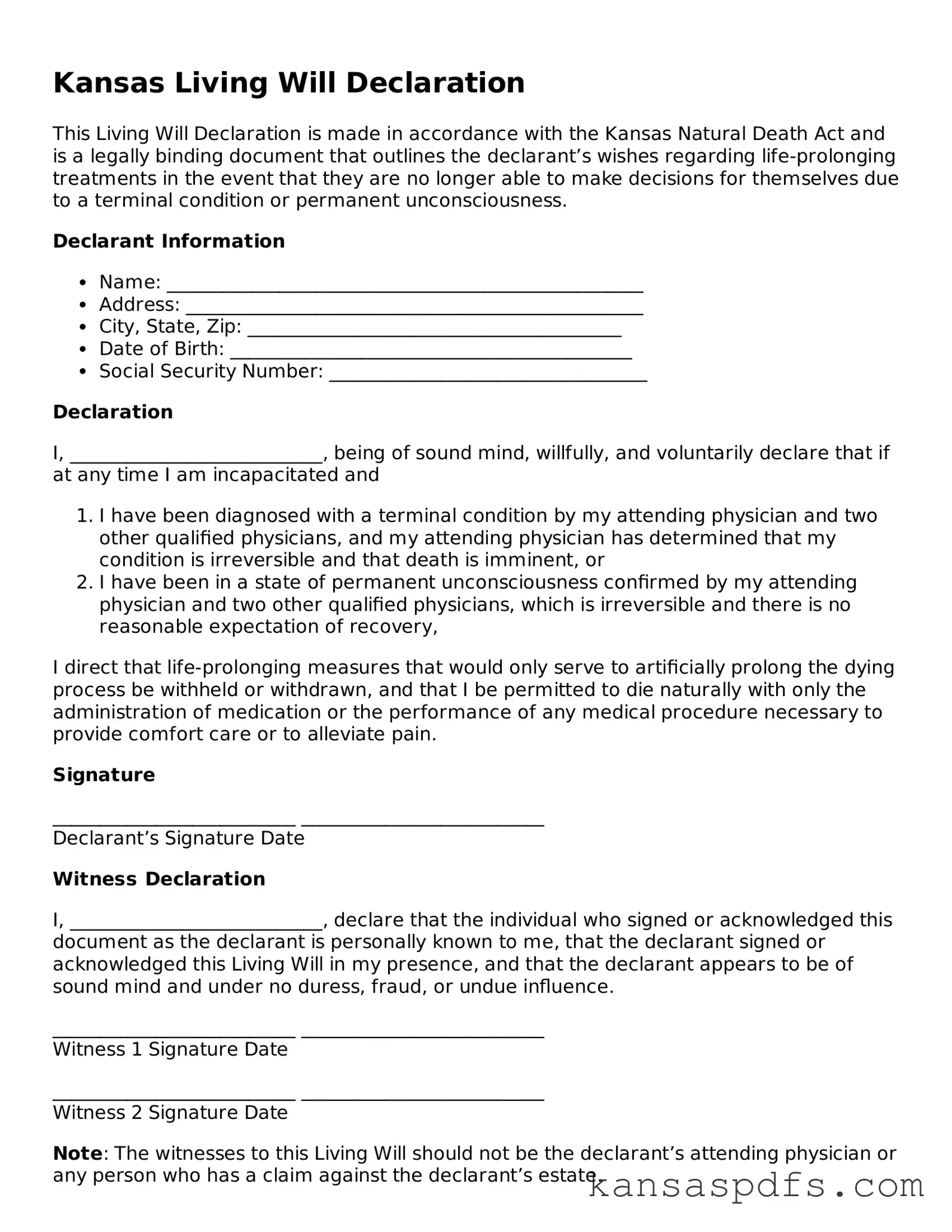What is a Kansas Living Will?
A Kansas Living Will is a legal document that lets people state their wishes about medical care in case they can no longer communicate due to serious illness or incapacity. It guides loved ones and doctors in making decisions about life-sustaining treatment when someone is near the end of their life.
Who should have a Kansas Living Will?
Any adult who wants to make their health care preferences known ahead of time should consider creating a Living Will. It's especially important for those with strong feelings about what medical treatments they do or do not want to receive in specific situations.
How do I create a Kansas Living Will?
To create a Living Will in Kansas, you must complete a form that complies with state law, clearly stating your health care wishes. The form must be signed in the presence of two witnesses who meet certain criteria or a notary public. The witnesses must not be related to you by blood, marriage, or adoption and must not stand to inherit from you.
Do I need a lawyer to make a Living Will in Kansas?
No, you do not necessarily need a lawyer to make a Living Will in Kansas. However, consulting with a lawyer can ensure your Living Will meets all legal requirements and fully reflects your wishes.
Can I change my Kansas Living Will?
Yes, you can change or revoke your Living Will at any time. To do so, you should create a new Living Will that reflects your current preferences or formally revoke your existing one. Inform your family and any medical providers of the change.
What happens if I don't have a Kansas Living Will?
If you don't have a Living Will, decisions about your medical care will be made by your family or, if necessary, by a court-appointed guardian. Without your explicit instructions, these decisions may not reflect your true wishes.
Is a Kansas Living Will the same as a Durable Power of Attorney for Health Care?
No, they are not the same. A Living Will specifically addresses end-of-life decisions. A Durable Power of Attorney for Health Care appoints someone else to make health care decisions for you if you cannot make them yourself. It's broader and not limited to end-of-life situations.
What should I do with my completed Kansas Living Will?
Once completed, give copies of your Living Will to your family, healthcare proxy (if you have one), and doctors to ensure your wishes are known and can be followed. You might also keep a copy in a safe place where it is easily accessible.
How does a Kansas Living Will impact my family?
A Kansas Living Will can relieve your family of the burden of guessing your wishes regarding life-sustaining treatment in difficult times. It can provide clarity and guidance, reducing potential conflicts or doubts about the decisions made on your behalf.
Where can I find the Kansas Living Will form?
The Kansas Living Will form is available on several legal websites, healthcare organizations, and sometimes from your healthcare provider. Make sure the form you use complies with Kansas law to ensure it's legally binding.

